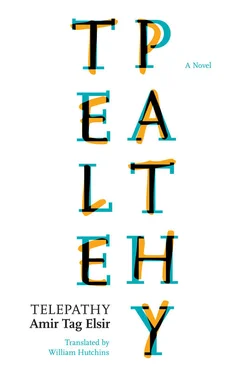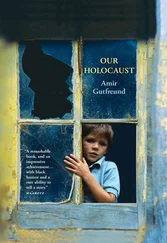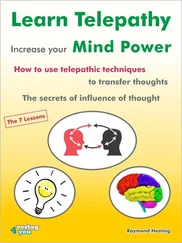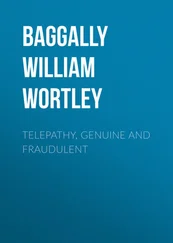As we were preparing to depart with our disturbed catch, I asked Hajj al-Bayt, “Doesn’t Nishan have some family members or relatives here?”
“No,” he replied. “Not here — but there are definitely some elsewhere. He used to have a relative here named Zakariya, a truck driver who hauled brick and gravel to construction sites. He disappeared last year, and people say he married an Ethiopian girl and went with her to her country.”
He had a relative who drove a truck? My God! I had included him as a character in Hunger’s Hopes too — the trucker who calmed Nishan down when he became hysterical. He would tie him up with ropes whenever he sensed that Nishan was becoming dangerous.
Hajj al-Bayt asked me, “Where are you taking him?”
“To a psychiatric hospital,” I replied as we departed.
By then day had ebbed away, and a desolate, depressing night was preparing to claim Wadi al-Hikma.
I sat in the office of Dr Shakir, the head of al-Nakhil Private Psychiatric Hospital. Three buttons had popped off my shirt and my hair had become disheveled during our struggle with Nishan. I smelled embarrassingly rank from sweat and was in a hurry to return home to attend to myself physically and mentally and restore to myself some of the dignity that had evaporated in a struggle I should have avoided. The only link between this conflict and myself was a silly story called Hunger’s Hopes .
I had begun to hate the novel intensely. I hoped that no further copies would be sold and that its distribution would be limited to the copies already sold. If I could find a way to collect all the remaining copies from the warehouses, I would. The Shadow had asserted with total confidence and arrogance that Nishan had sent it to me and himself fiddled with the parts that did not correspond to his life. That made me merely the recipient; I had received this catastrophe and made things considerably worse. The Shadow, however, had ignored many things, such as my style, which hasn’t changed from one story to another. He had ignored my technique, which I claim to have invented, of playing around with sections and chronology. I put one step in the place of another that originally preceded it and delay the arrival of one word out of respect for another. These are all my own tricks that I am sure could not have turned up in a telepathic text. The Shadow was swayed by his relationship with Father Matthew and by his claim that the play wasn’t one he had created. I, for my part, was still wavering and unable to reach any conclusion, whether sagacious or fallacious.
What I had written down had actually happened. I had simply added a future I wanted to happen. Had Nishan been responsible for the entire story, there would have been no possibility of the character dying of glandular cancer. He was timorous and did not want to die. That was patently clear.
I realized that I was attempting to analyze matters that defied analysis and was thus taxing my mind pointlessly. The psychiatrist opposite me was elegant and rather handsome, even though he was getting on in years. Dr Shakir was a longtime friend, a classmate from secondary school. In my opinion, he could have had a successful career as a singer. He had encouraged us to listen to songs and had occasionally sung himself. He drew satirical caricatures, but only a few people knew about this talent.
When we brought Nishan from Wadi al-Hikma to the hospital, he was in no state to be lodged in an ordinary house overnight in anticipation of an examination by a specialist in the morning. We transported him in the car — tormented and rather disgusting. He struggled against the rope’s constraints, attempted to escape, succeeding to some degree and frightening Ifranji, who now doubted his prior conviction that he could guard Nishan and serve as his paid caregiver.
I watched as Ifranji, this self-styled conqueror of the jinn and heart-throb of Daldona, turned in alarm, scratching his skimpy beard with dirty fingers. I heard him tell me I needed to speed up. Then, in his own special whisper, in a barely audible voice, he lauded the torn rag he had stretched out on every night in the Aisha Market, before I had tracked him down and hired him for this nightmare.
Ifranji’s demeanor suggested that he would bow out of this assignment, and I didn’t want to pressure him further, in order to prevent him from fleeing my embrace. I needed him for many services. It crossed my mind at that moment that I should give him the rental house and tell him candidly that it would be for Nishan, once he was cured.
When I first hired Ifranji, I had not told him about the telepathy tale that had shaken me and led to my involvement with Nishan Hamza, because I knew he would never fathom a cursed mystery like this. He knew me as a former math teacher in the school where he had once worked as an errand boy; he had quit when I did. He knew I was currently a writer with no day job, but his limited cultural background and his defective knowledge of the language in which I write had prevented him from reading any of my works. In fact, I doubt he would have read them even if he had been fully literate and fluent in Arabic.
At the time I had told him, “I’m performing my duty as a human being on behalf of an individual whose family I know.” For his part, he had only asked about Nishan’s syndrome and his mercurial personality.
We brought Nishan — or NHN as I thought of him, because his lengthy name had started to oppress and depress me whenever I uttered it or even thought about it — to the hospital. He was still tormented by his symptoms and struggling with Ifranji’s strong rope. He was also cursing at a mutinous soldier in the army he had created on the abandoned railroad line, a lazy wastrel of a fly that wouldn’t let him sleep, and a damned boy named Adula, who called him with a feminine voice and wouldn’t stop. Even the drowsiest eyes turned to look when we passed on the streets or stopped at a red light. En route I told Dr Shakir by phone about Nishan’s tragedy and mine. His understanding of schizophrenia was keen, but he did not wish to wade into a discussion with me about telepathy, either because he considered it an urban myth or because he didn’t understand it.
Nishan was received at the door of the hospital the way non compos mentis patients usually are. They used strong leather straps to fasten him to a clean stretcher and then carried him to an isolated room, where not even a trifling fly was allowed access without written permission.
I observed him stretched out on a white metal bed with his wrists manacled or lying on the table next to him. I watched him as he calmed down and fell asleep. Occasional snot dripped from his nose, but his insane slobbering had stopped. Then, if a dream toyed with him, it was inevitably a rosy one that featured his departed but beloved Ranim or a rowdy courtroom with defendants and witnesses at whom he barked instructions, because he was the judge.
Joseph Ifranji, who had clipped his shades to his shirt pocket once night fell, roamed the hospital in search of nurses who had left the South. He hoped to detain them long enough for some fleeting romance, as he informed me. I gave him several pounds and offered him a choice between sleeping in the small rental house or returning to the Aisha Market where he usually lived, loitered, and hugged Daldona, daughter of the jinn. He chose the house — not because he thought it superior, as he informed me, but because his jinni lover was out of town for the time being. She had traveled with her family to a desert resort where they spent their summer holidays each year.
By my lights, this Ifranji is a unique character and deserves — with his broken Arabic and the tales he tells without cracking a smile or laughing — to be the protagonist of a novel. I have already mentioned that I once appropriated his character. That was, unfortunately, buried in an abandoned manuscript that I believe will never see the light of day. I was happy to rediscover him, and the fact that he had named his son after a tree that he had heard about by chance in the market inspired many paragraphs that I could use in future works. This, however, wasn’t the time for writing. First, someone needed to crack the multifaceted riddle that was NHN.
Читать дальше












